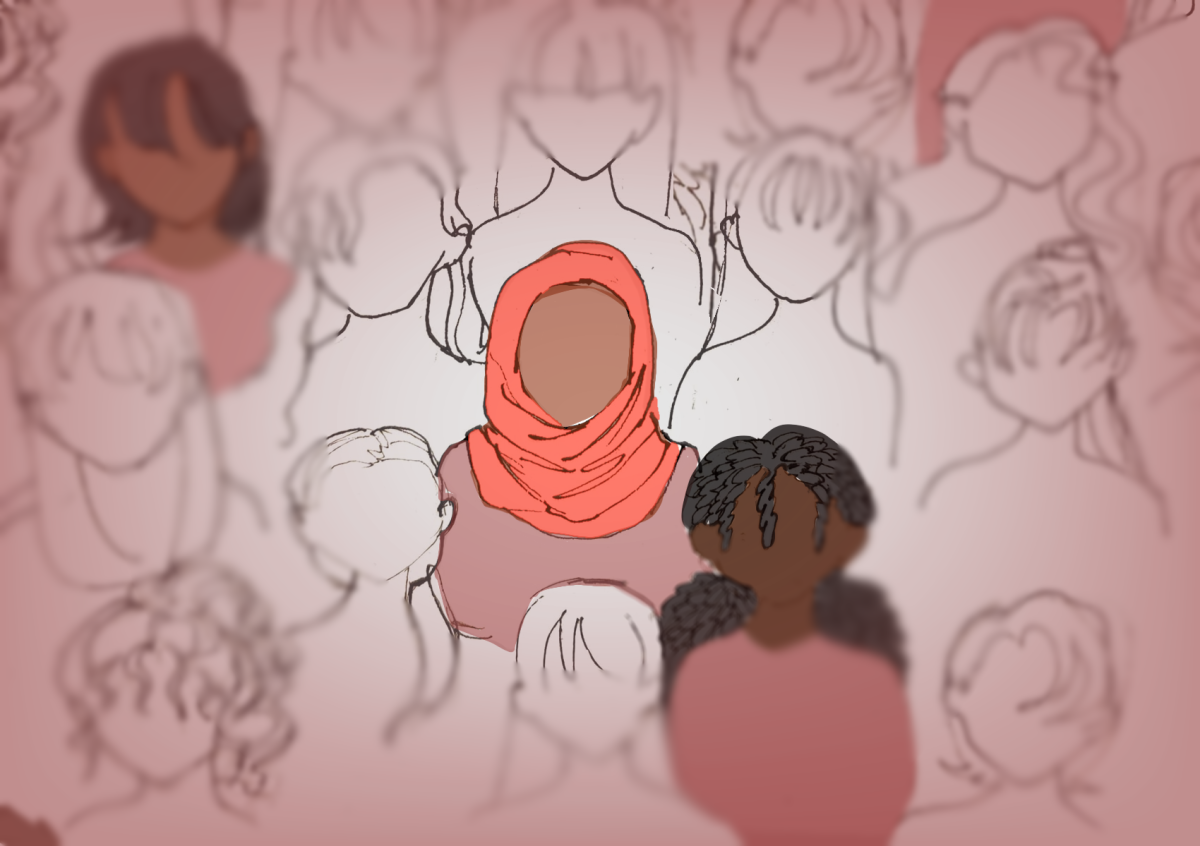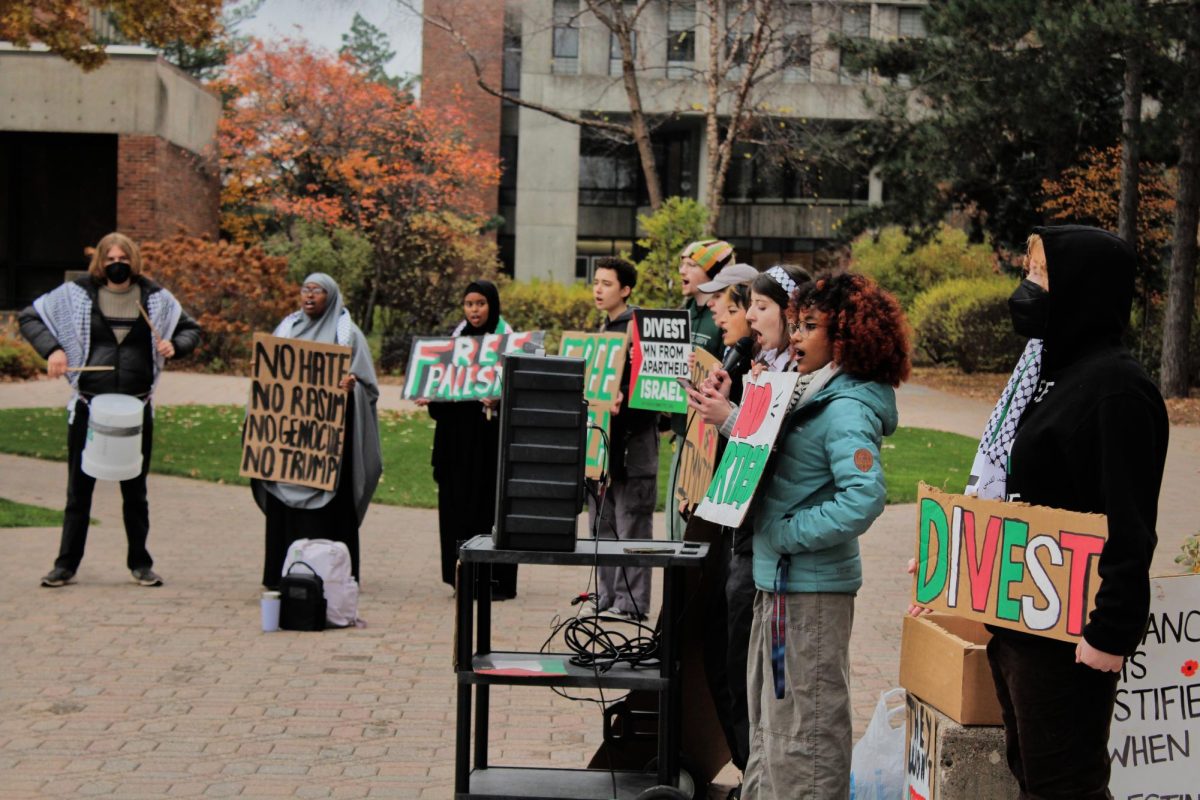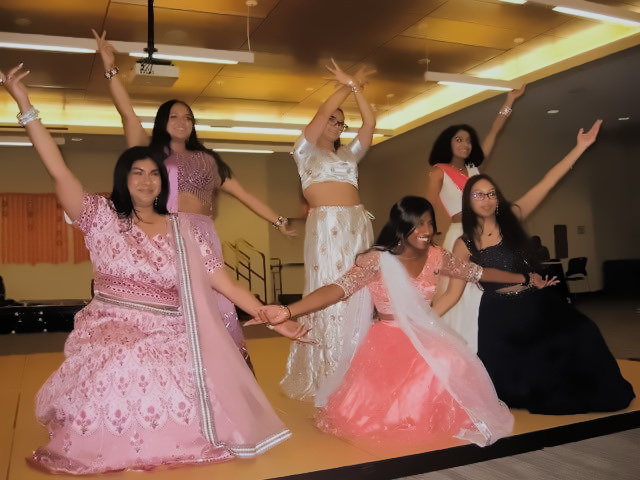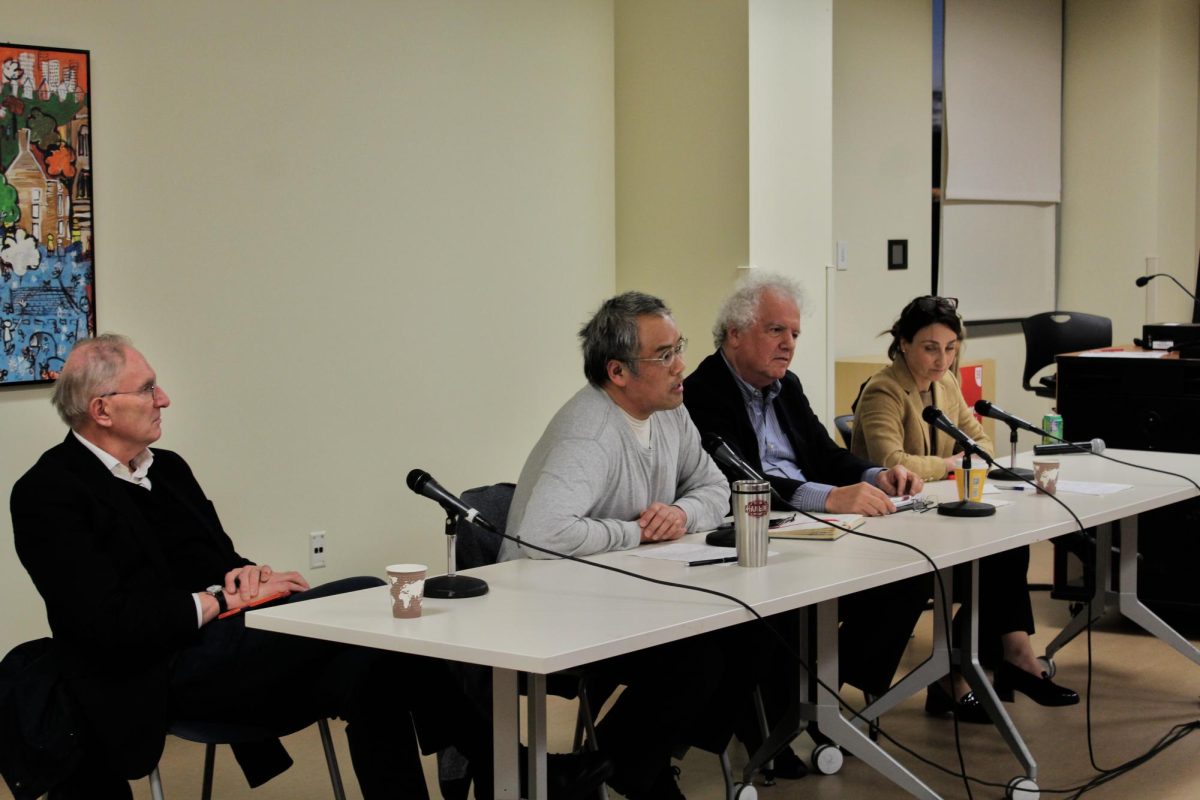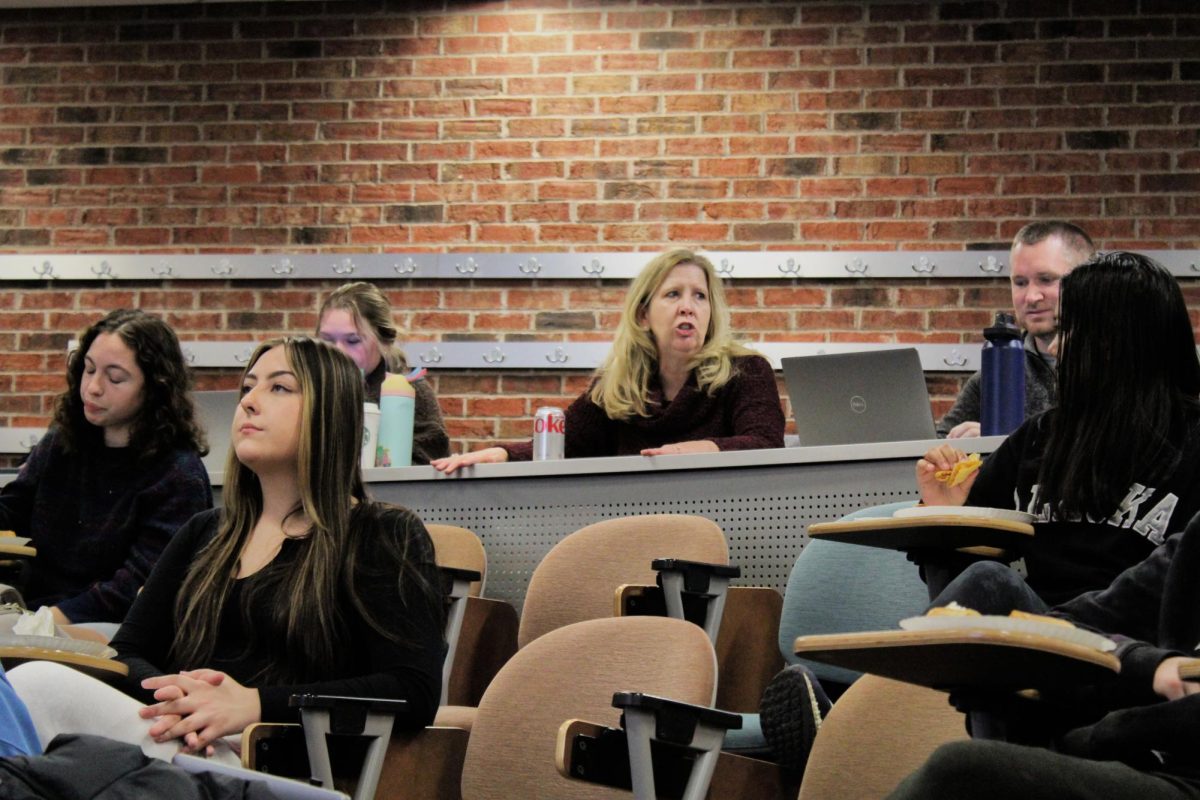Following their unopposed presidential campaign, junior Elisa Lopez and senior Oliver Engstrom begin their term as the respective External and Internal Presidents of the Hamline Undergraduate Student Congress (HUSC). Both presidents tread in the footsteps of former Internal President, Abi Grace Mart and External President, Travis Matthews. Beginning their campaign in February, Lopez and Engstrom have used a variety of campaign tactics to pull in voters, including making posters and posting on social media. Their platform advocates for a variety of student and faculty issues, but largely focuses on three pillars of policy: accessibility to knowledge, campus reformations and engagement with the community.
Accessibility to Knowledge
Following several protests by students last year, Lopez and Engstrom have included a pillar in their campaign that seeks to offer a more transparent look into the inner workings of the university. Lopez named HUSC as one such facet of Hamline that she believes needs more transparency.
“We took it in a way of three pillars…Our biggest one and a main priority this year is accessibility with Hamline Undergraduate Student Congress (HUSC).” Lopez said.
Director of Student Activities and Leadership and HUSC Co-Advisor Patrick Haught also noted that the number of students represented within administration-majority committees has risen — the result of an initiative recommended by both HUSC and students.
“Just this past year, there were searches for three different positions on the president’s leadership team, and students were represented on the search committee in every single one of those searches; which I can almost assure has not been consistent in the past.” Haught said.
Although positions within HUSC require a significant time commitment that may not fit all students, Lopez acknowledges that students should still have a voice.
“Not everyone has the capacity to join HUSC. But everyone should be allowed to make the decision and have the opportunity to make that an option and make their voice heard in that way.” Lopez said.
Campus Reformations
Rather than looking outwardly for solutions to issues that students, staff and faculty care about, Lopez says their second pillar revolves around looking inwardly and transforming the structure we already have.
“[We’re] really digging back into what we already have at Hamline that we can develop and change into a way of working for students now, as opposed to trying to continue to buy into more solutions that may not be viable in the future,” Lopez said.
Solutions, however, take time. Most presidents serve for only one term, which is equivalent to 8 months, although there is no current policy that bars a former president from running again.
Vice President of Student Affairs and Dean of Students Patti Klein-Kersten explained the importance of consistency within HUSC, pointing out that when a solution is continually built upon, the goal is reached more efficiently.
“When year over year they’ve got some consistency of things that they’re working on, it does create that longer ramp, if you will, to be able to work towards whatever they’re working towards,” Klein-Kersten said.
With consistency, Lopez and Engstrom seek to allow students, staff and faculty to share their voices, and more importantly, feel like they are being heard.
“There’s such a barrier of access and people finding avenues to be able to be heard in that way and feel as though when they speak, people are listening,” Lopez said.
Engagement with Community
Lopez and Engstrom’s third pillar centers on engaging with both the on and off campus communities. For Engstrom, on-campus involvement looks similar to a neighborhood organization like the Hamline-Midway Coalition (HMC).
“I wanted to bring more actual community involvement, so Elisa brought me to HMC and I was like, this is exactly what I’ve been looking for on campus,” Engstrom said.
Conversely for Lopez, continuing to look inward and hear the voices of students, staff and faculty is the key to success.
“This needs to be a group effort, not just Ollie and I’s platform. Students should be able to have that accessibility to us so that when we make a decision, it is the best decision for the group.” Lopez said.
With only 8 months in each term, many issues are quickly brought to the table in search of solutions. Given time restraints among other factors, smaller issues might fall through the cracks as those in leadership roles seek to solve other complex and pressing issues. Engstrom recognizes the continued importance of advocating for basic needs in a way that solves the issue; not masks it.
“It doesn’t need to be the bare minimum. Basic doesn’t mean [the] bare minimum. It means that everyone should have access to it. Moreover, they should have it in a way that’s not a last thought.” Engstrom said.
Looking Forward
As Lopez and Engstrom begin their term, the one issue they cannot solve is time. With just eight months to approve budgets, manage student organizations and train new members, among other things, Haught recalls that many HUSC-founded resources on campus were not completed within a single term.
“I think about things like the Food Resource Center (FRC) and the addition of non-gendered restrooms in every building on campus, which were initiatives that HUSC played a heavy role in. But none of those projects happened in a year.” Haught said.
Despite their short term, Lopez and Engstrom emphasize the need for follow-through in order for their policies to make an impact.
“Follow through is a huge part because I love to do a lot, but if a lot’s on my plate and there’s no follow through, then you’ve done nothing,” Engstrom said.


